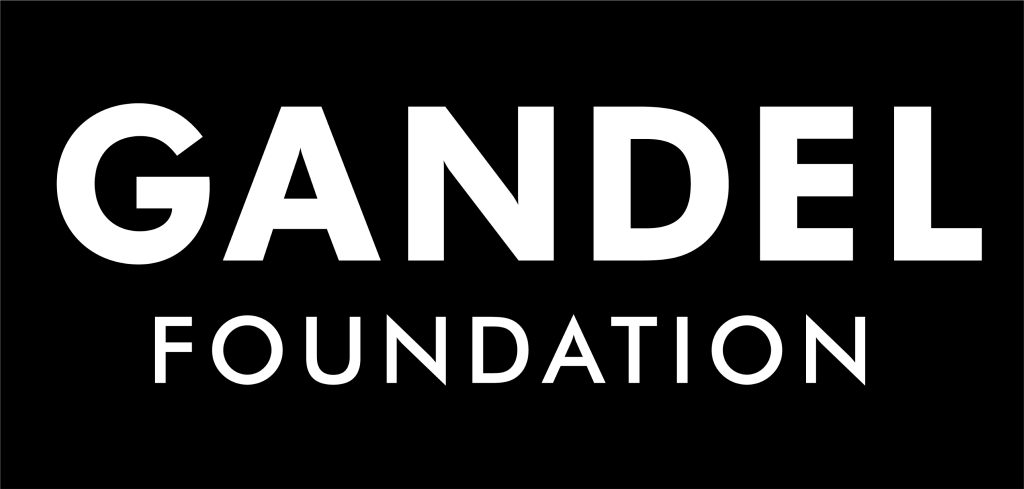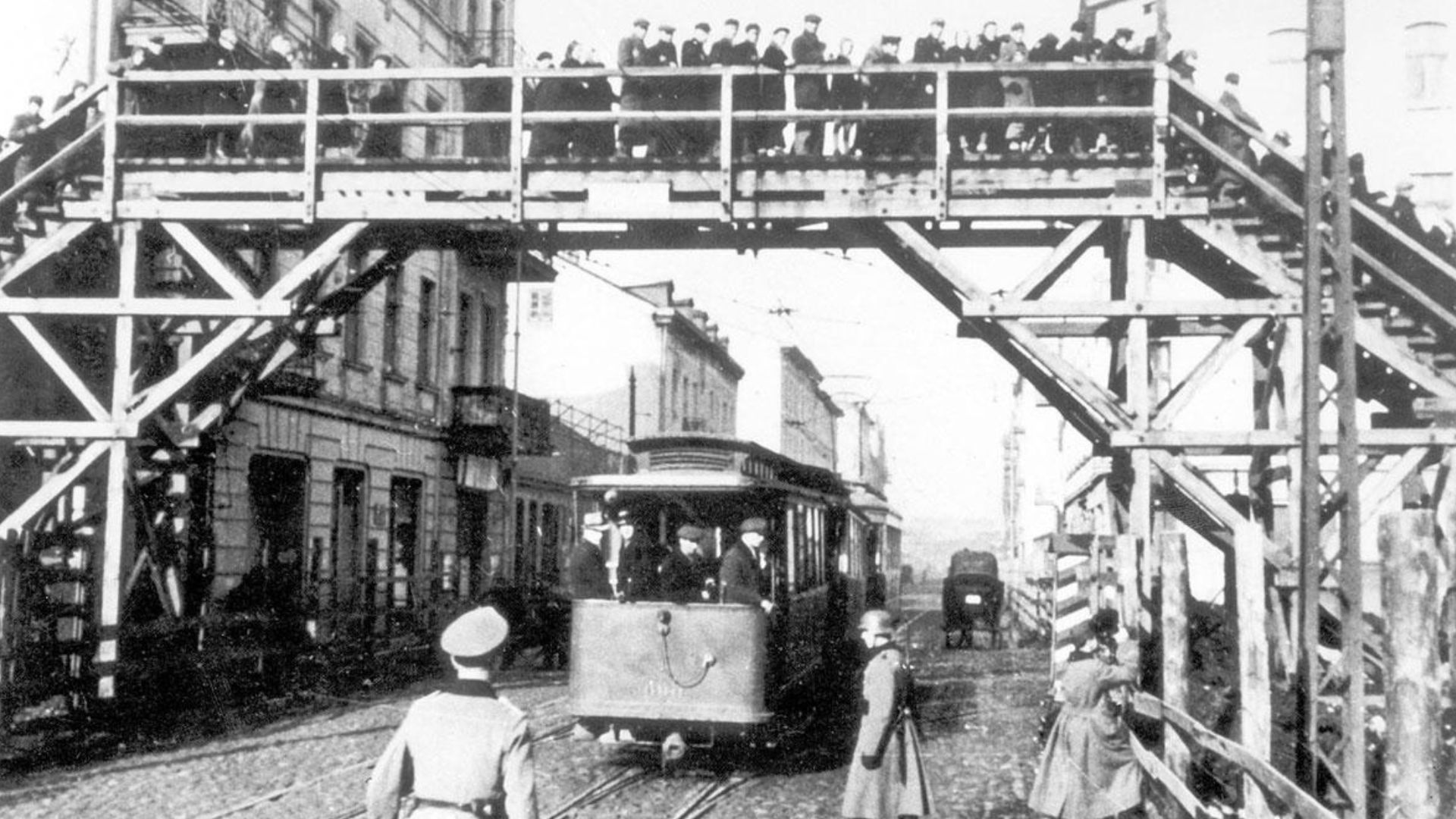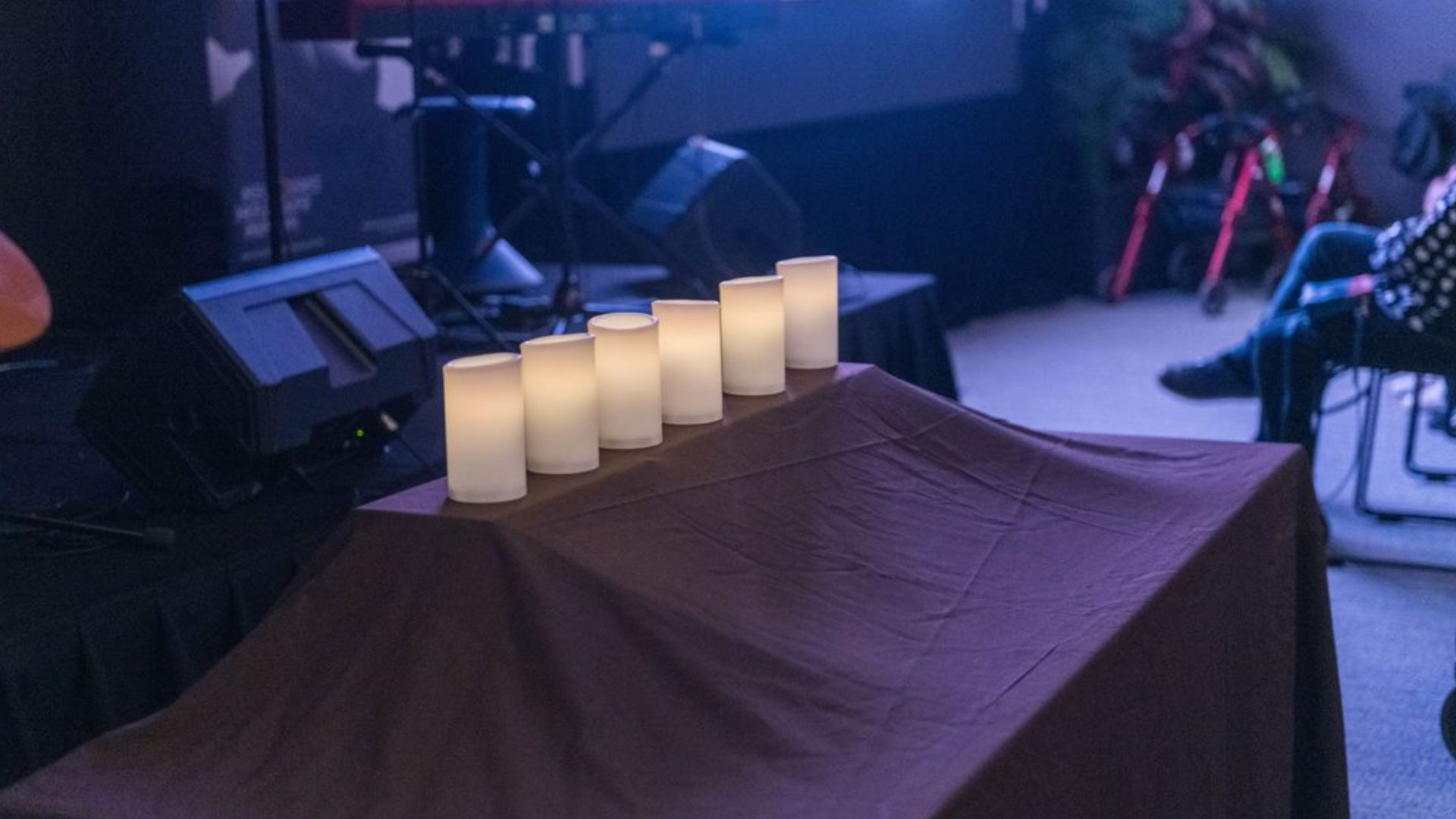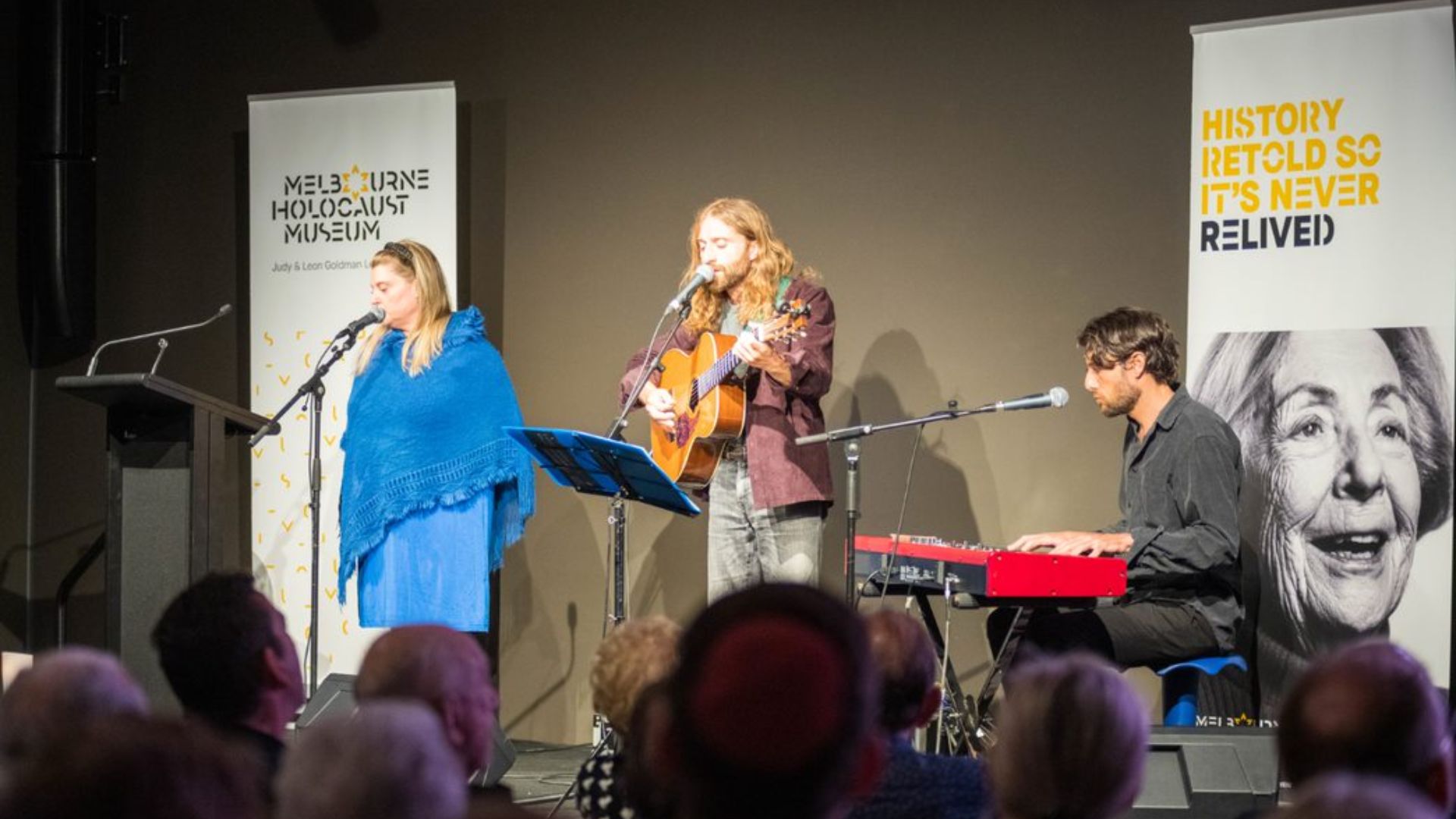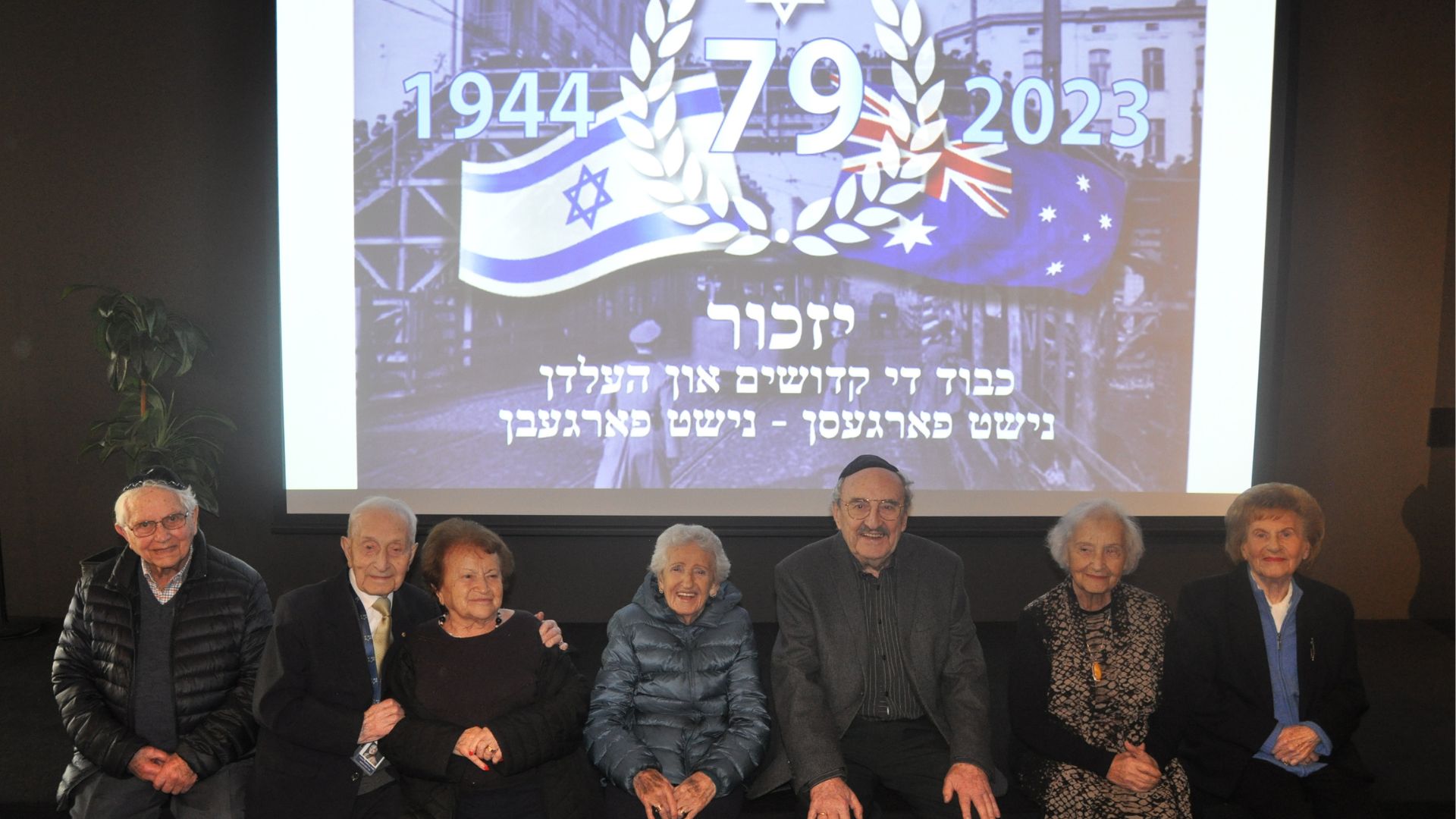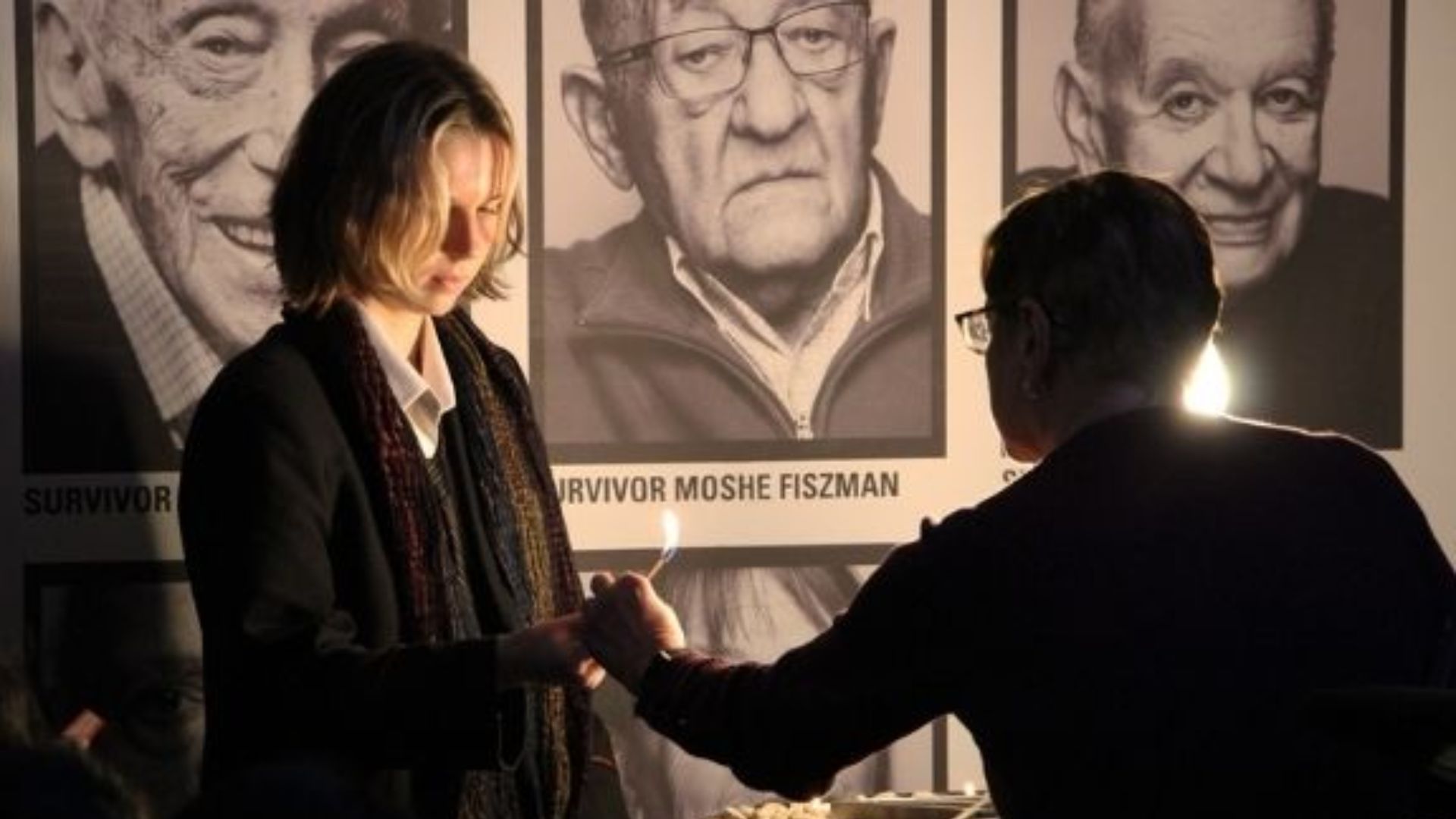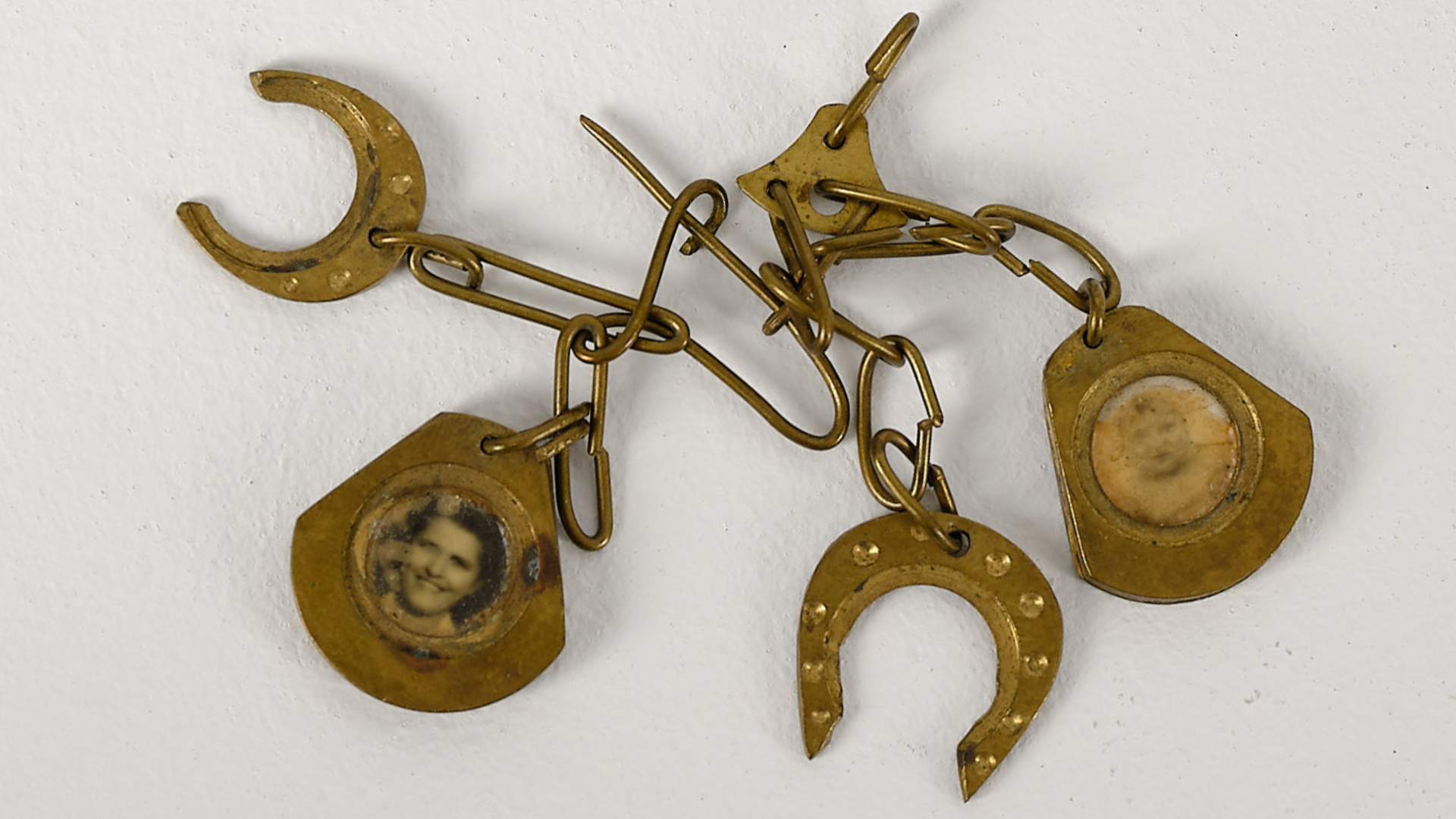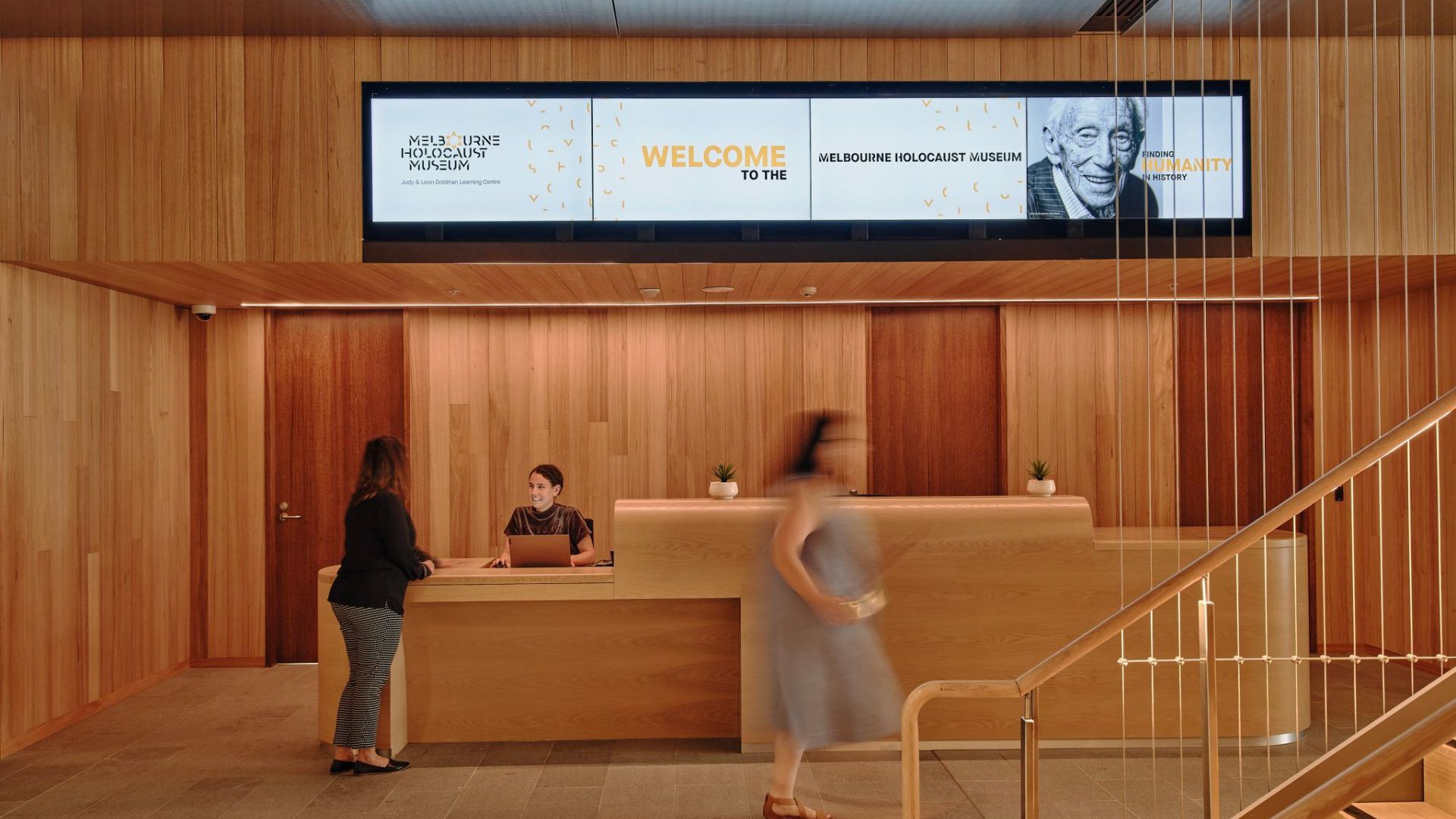Our commitment to remembrance
A promise to never forget
At the MHM, we are dedicated to the memory of the six million Jews murdered by the Nazis and their collaborators between 1933 and 1945.
And we believe the finest memorial – to all victims of racist policies – are education programs and exhibitions that are a catalyst for greater understanding and acceptance of difference, to inspire a better future.
Here are some ways you can join us in the important act of remembering the Holocaust.
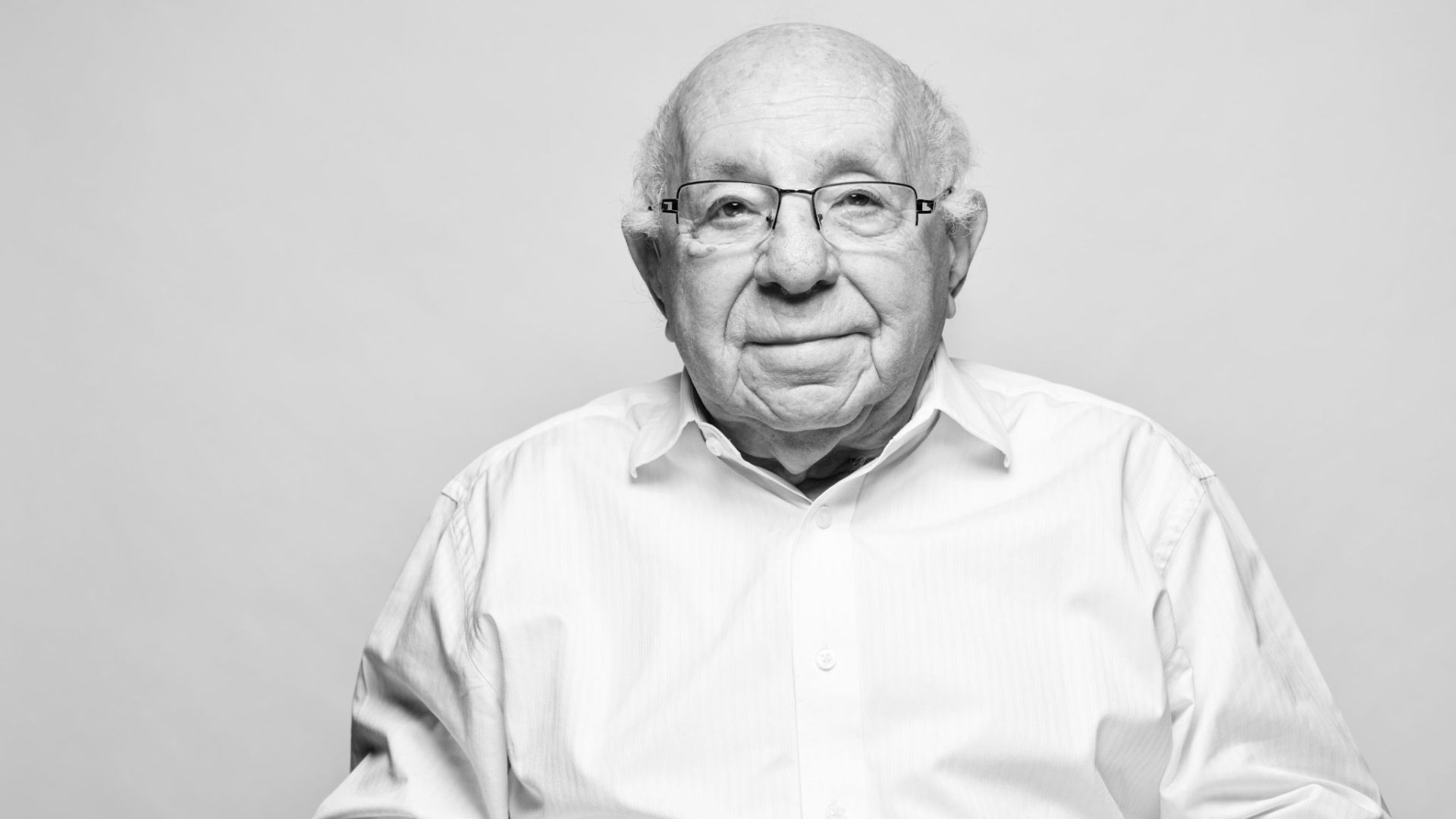
Meet our survivors
Hear directly from Melbourne-based Holocaust survivors and eyewitnesses – via virtual programs and online or in-person events – as they share their testimonies and experiences.
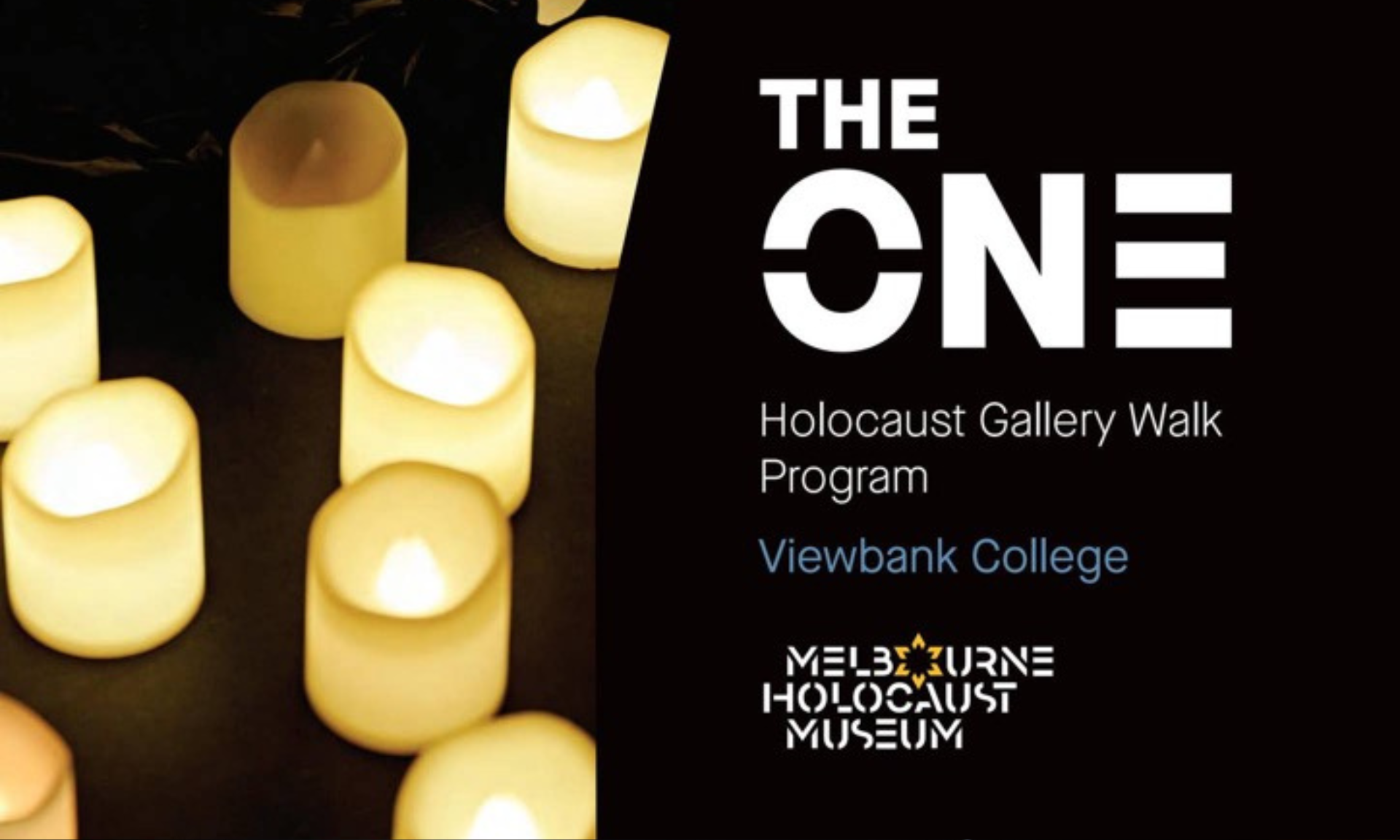
The One - Holocaust Gallery Walk Program
Year 9 students from Viewbank College visited the MHM to learn about the Holocaust and hear Melbourne-based survivors speak about their stories of survival and hope. Two teachers from Viewbank College then participated in the Gandel Holocaust Studies Program for Australian Educators, deepening their own understanding of the Holocaust and gaining crucial insights into how to teach about the Holocaust in a way that fosters empathy, humanity and critical thinking.
Inspired by the theme of ‘The One,’ the English and Humanities teams at Viewbank College designed an integrated unit where students worked in small groups to explore personal stories of survival, hope, and resilience from the Holocaust. Their research culminated in a Holocaust Gallery Walk, an open evening where they proudly presented their work to teachers, parents, and the wider community.
Art has the power to bear witness and to remember. This incredible collection of student artwork is a profound testament to that truth. The Year 9 students at Viewbank College have transformed a dark chapter in history into visual expressions of memory, resilience, and hope.
The MHM is grateful to the Gandel Foundation for their ongoing support and goodwill. Their generosity and belief in this project have brought this book to life.
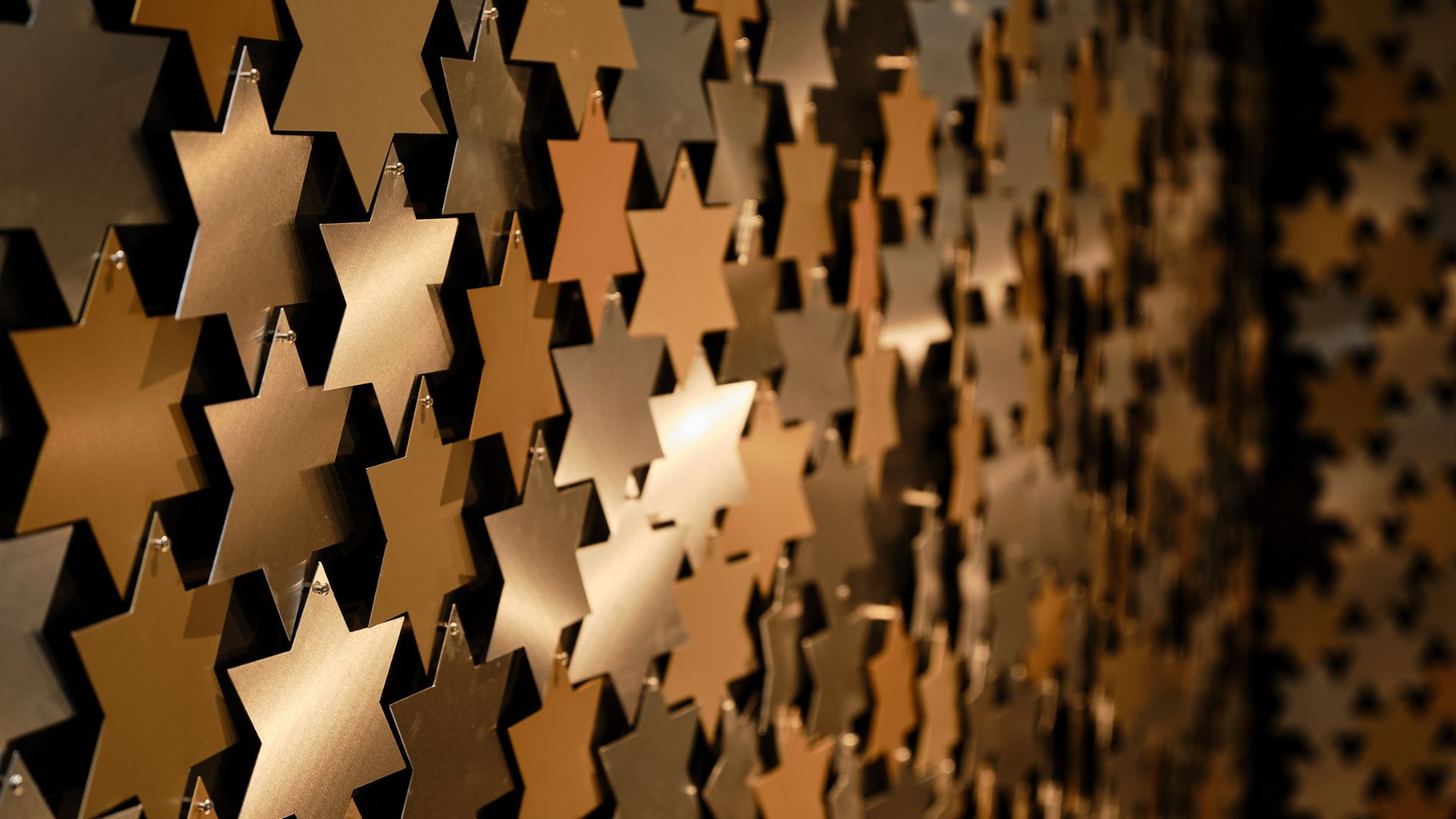
Memorialise at MHM
The Melbourne Holocaust Museum (MHM) is proud to serve the public not only as a museum but as a dedicated memorial site for Victorian families with a connection to the Holocaust.
With this in mind, we are establishing a digital memorial for our community to honour their loved ones by eternalising their names for future generations. With the information provided, we are creating a Victorian Registry of Holocaust survivors, which will provide families with the opportunity to honour both those who were murdered during the Holocaust, and those who survived and have since passed away.
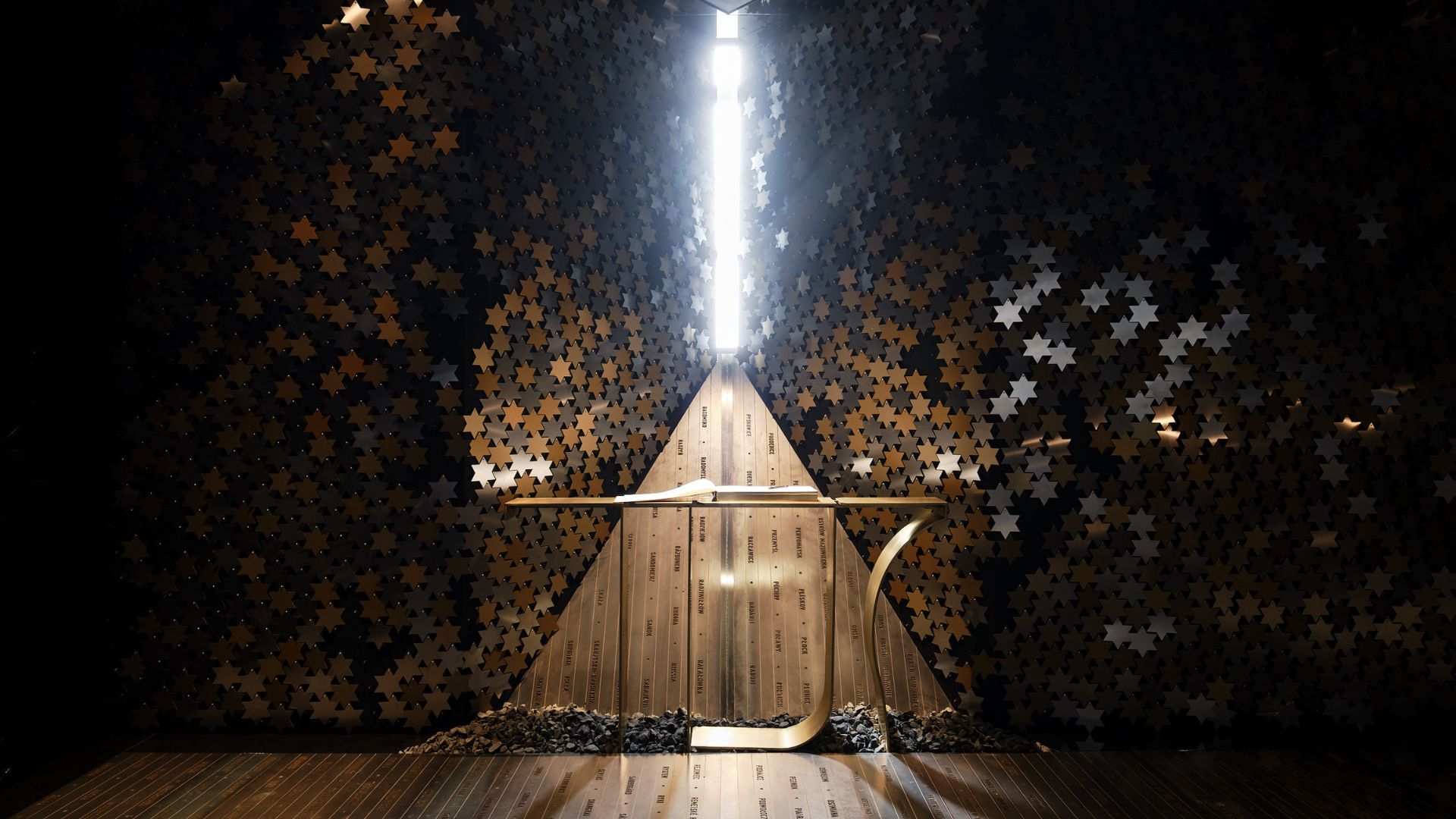
Memorial Room
Designed by Stephen Jolson, a third-generation survivor of the Holocaust, the Memorial Room provides visitors with the opportunity to honour and remember Holocaust victims and survivors.
The space features photos, memorial star plaques and symbolic design pieces that will steer you through a quiet but powerful experience – as we collectively remember the past.
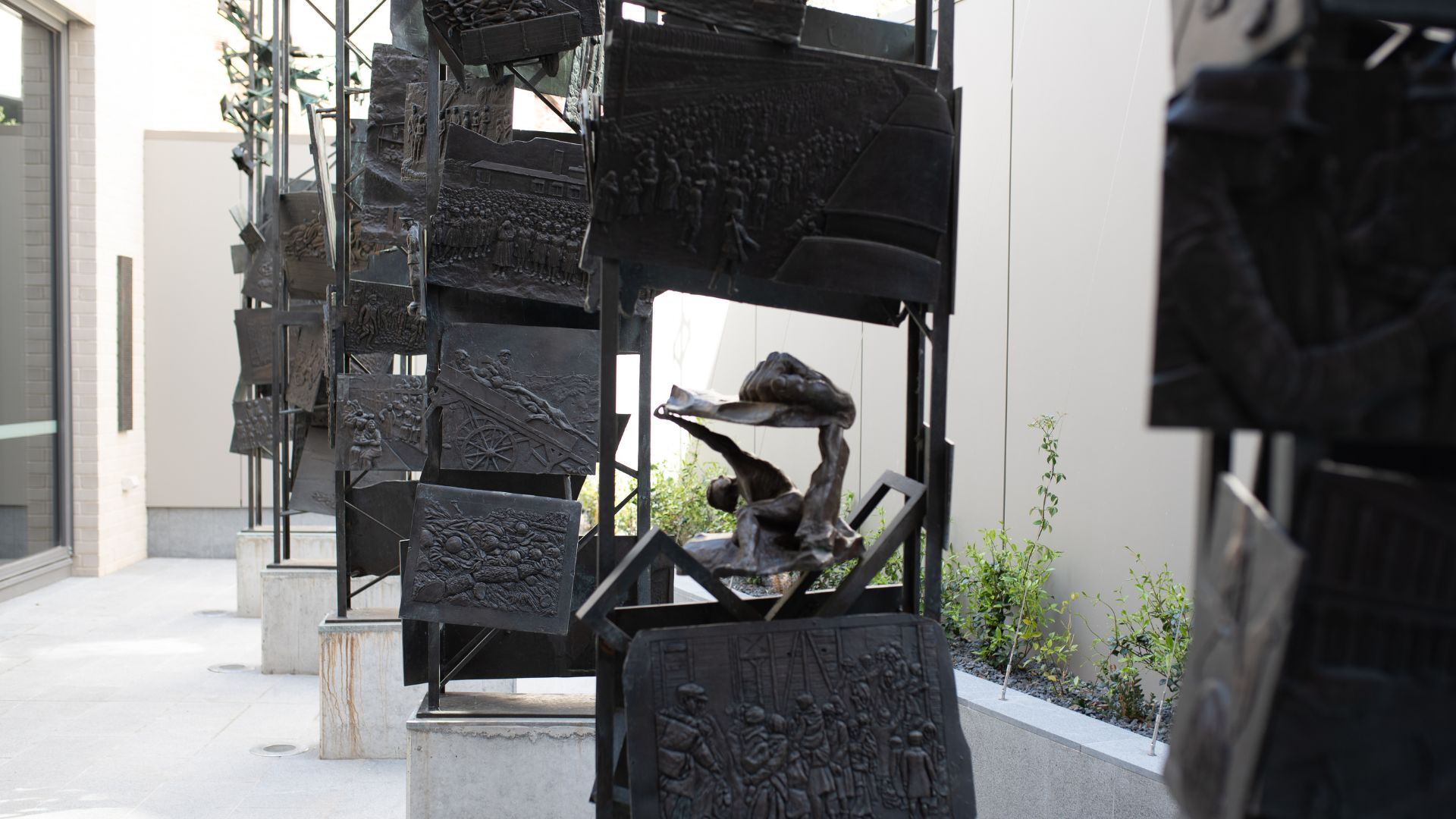
Our memorial garden featuring the ‘Pillars of Witness’
“Rogers reflects that the sculpture took months of ‘thought and activity’ two decades ago as he consulted survivors and developed 70 panels depicting the stages of the Holocaust.
‘It is still a resonating experience many years later,’ reflects Rogers.”
Our recent commemorative events
A rich history of remembrance
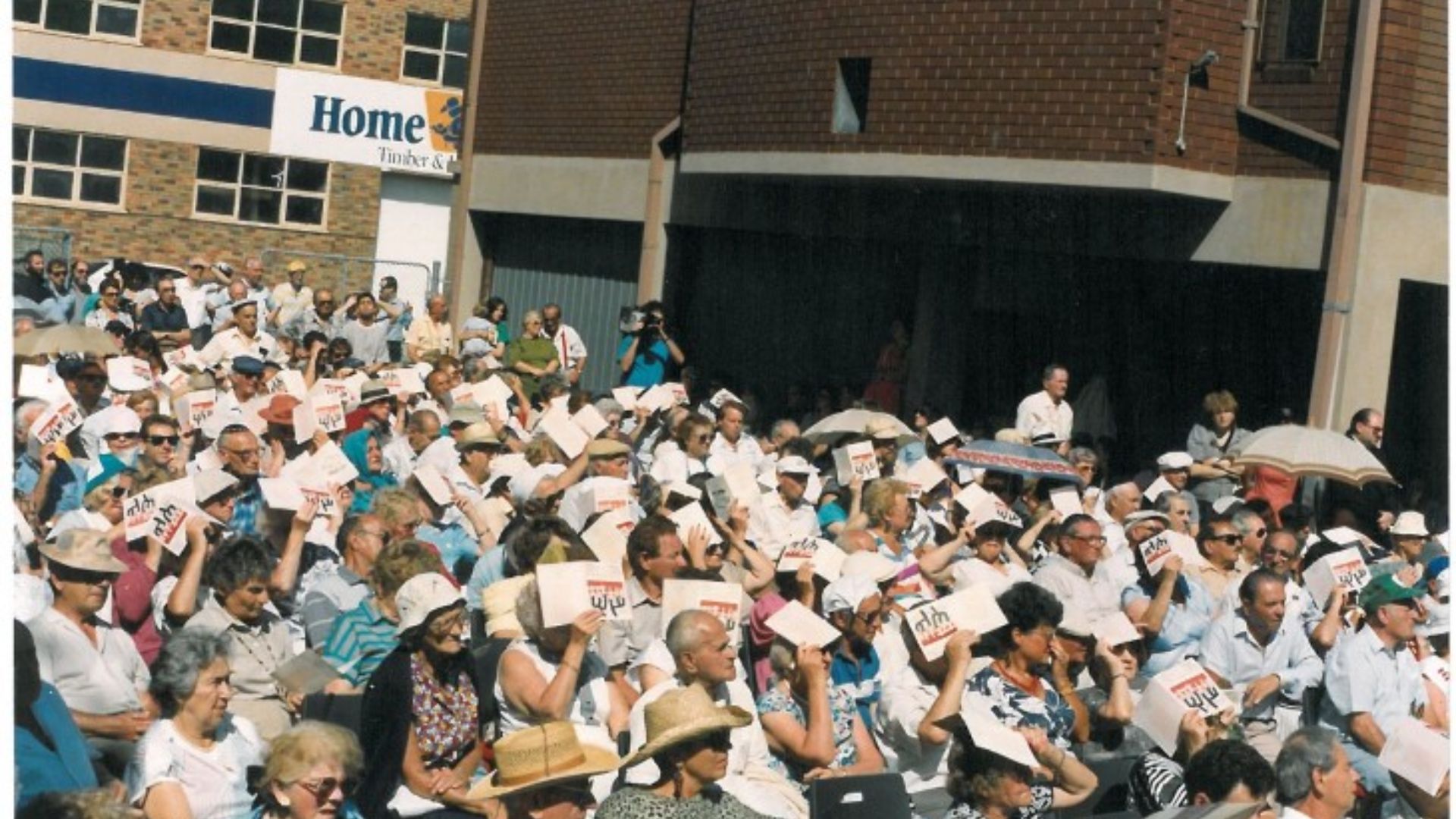
Our history
The MHM story began in 1984, when a group of Melbourne Holocaust survivors came together to honour their loved ones – and to ensure their stories were not forgotten.
Learn about our journey, our milestones – and our reason for doing what we do.
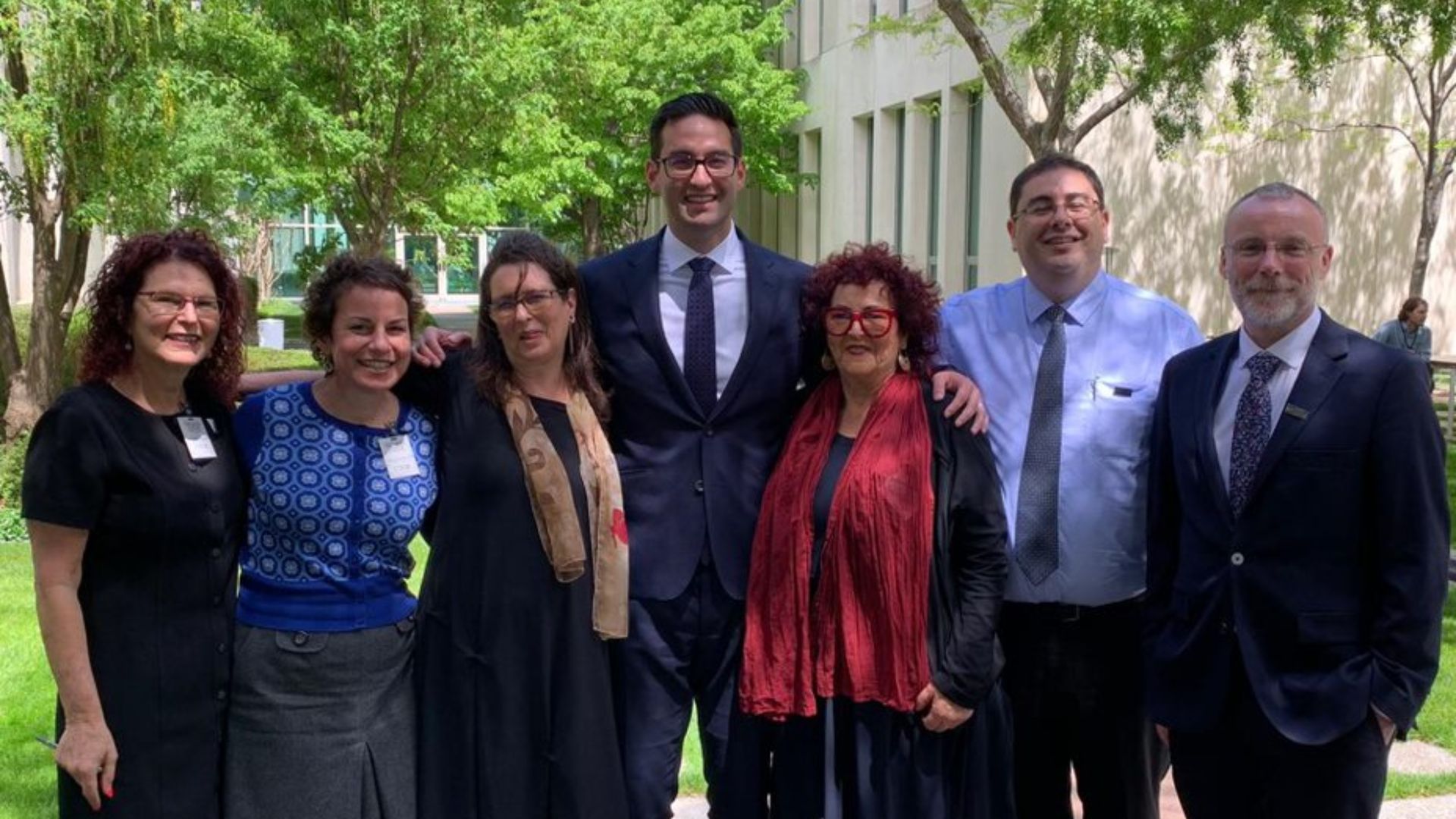
International Holocaust Remembrance Alliance
IHRA has 35 member countries and 8 partner organisations (including UNESCO and the Arolsen Archives) who work together to advance and promote Holocaust education, research and remembrance.
Australia became a member country in 2019.
